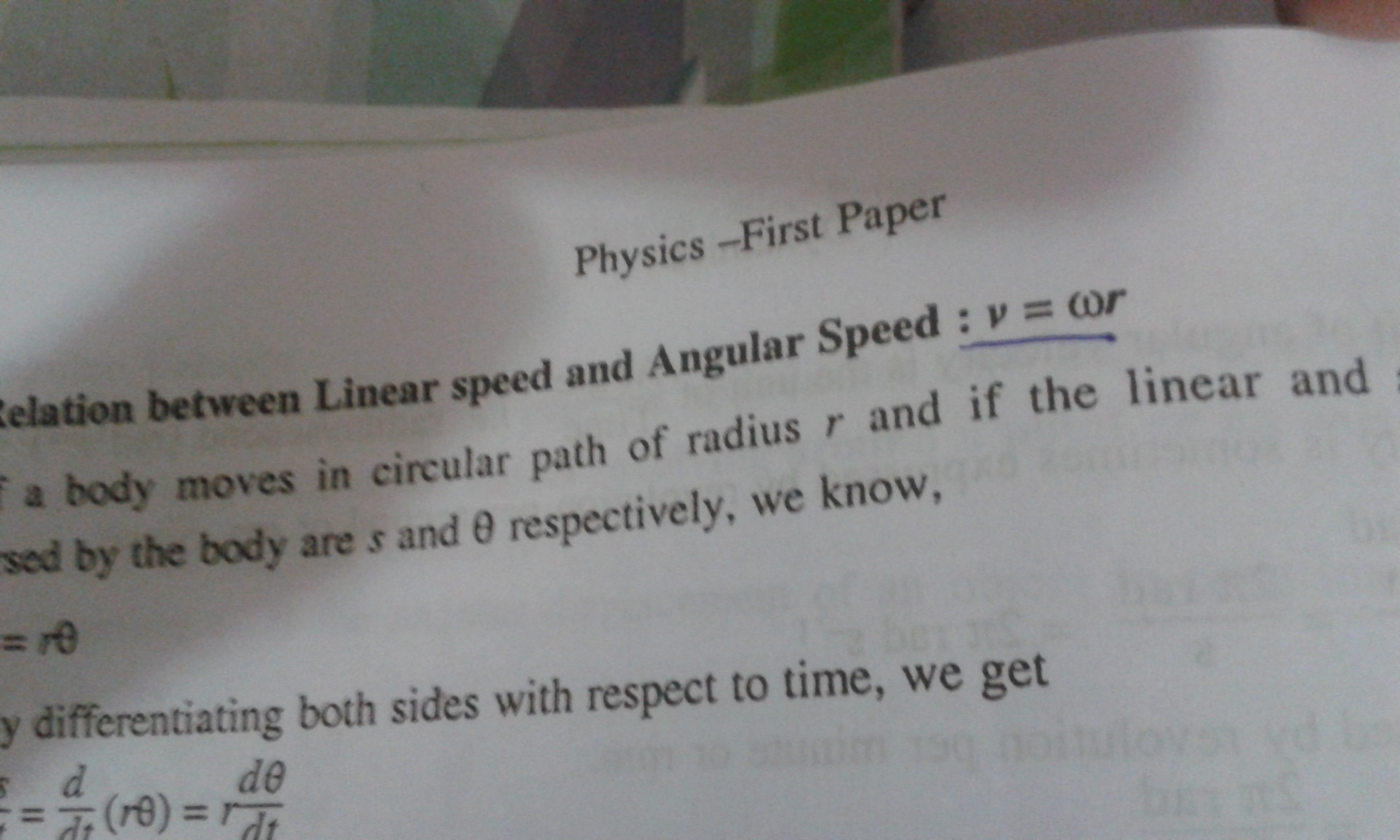Which one is the formula of angular velocity? Is it $\omega= vr$? If not then why does the source below use $mvr=nh/2\pi$, where $mvr$ is angular momentum and $vr$ is angular velocity? Again $\omega=v/r$ shows radian per second. I saw $\omega= vr$ in one book and $\omega= v/r$ in another!
-
1$\begingroup$ $\omega$ is angular velocity (in $\mathrm{s^{-1}}$), $v$ is speed (in $\mathrm{ms^{-1}}$). $v=\omega R$: just look at the units. $\endgroup$– GertCommented Nov 27, 2016 at 13:32
-
7$\begingroup$ I'm voting to close this question as off-topic because it shows no research effort. $\endgroup$– GertCommented Nov 27, 2016 at 13:33
-
$\begingroup$ $\vec \omega=\frac{\vec r \times\vec v}{|\vec r|^2}$ $\endgroup$– FarcherCommented Nov 27, 2016 at 14:12
-
$\begingroup$ What does dimensional analysis tell you? $\endgroup$– FlorisCommented Nov 27, 2016 at 14:26
-
2$\begingroup$ Your first image is wrong - the identification of $vr$ as an angular velocity is plain wrong. Find a better textbook. (On the other hand, the formula $mvr=nh/2\pi$ isn't wrong - you just need to set the angular momentum $L=mvr$ as equal to $m\omega r^2$.) $\endgroup$– Emilio PisantyCommented Nov 27, 2016 at 14:47
2 Answers
Angular momentum has dimensions of momentum times distance. The expression $mvr$ does NOT equate with $m\omega$; angular momentum would be $I\omega$ where $I$ is the moment of inertia.
Angular velocity:
$$\omega=v/r$$
Angular momentum:
$$L=pr=mvr$$
I believe you are confused because you mixed the expressions for (linear) momentum and angular momentum:
- Momentum equals velocity times mass, so $p=mv$.
- Angular momentum equals angular velocity times "angular" mass. And this "angular" mass is what we call moment of inertia I. So $L=I\omega$.
I seems that you tried to read $L=m\omega$ from the text in the book, which does not work.
-
$\begingroup$ But in the first picture vr= velocity is shown!again Momentum = mass *velocity! Shouldn't angular velocity * mass be angular momentum? $\endgroup$ Commented Nov 27, 2016 at 14:31
-
1$\begingroup$ @NayeemNmn Momentum equals velocity times mass. Angular momentum equals angular velocity times "angular" mass. And this "angular" mass is what we call moment of inertia $I$. $\endgroup$– SteevenCommented Nov 27, 2016 at 14:34
-
$\begingroup$ @NayeemNmn Look at the first picture again more closely: It doesn't say that $vr=\omega$; it says that angular momentum is equal to $mvr$. $\endgroup$– SteevenCommented Nov 27, 2016 at 14:37


